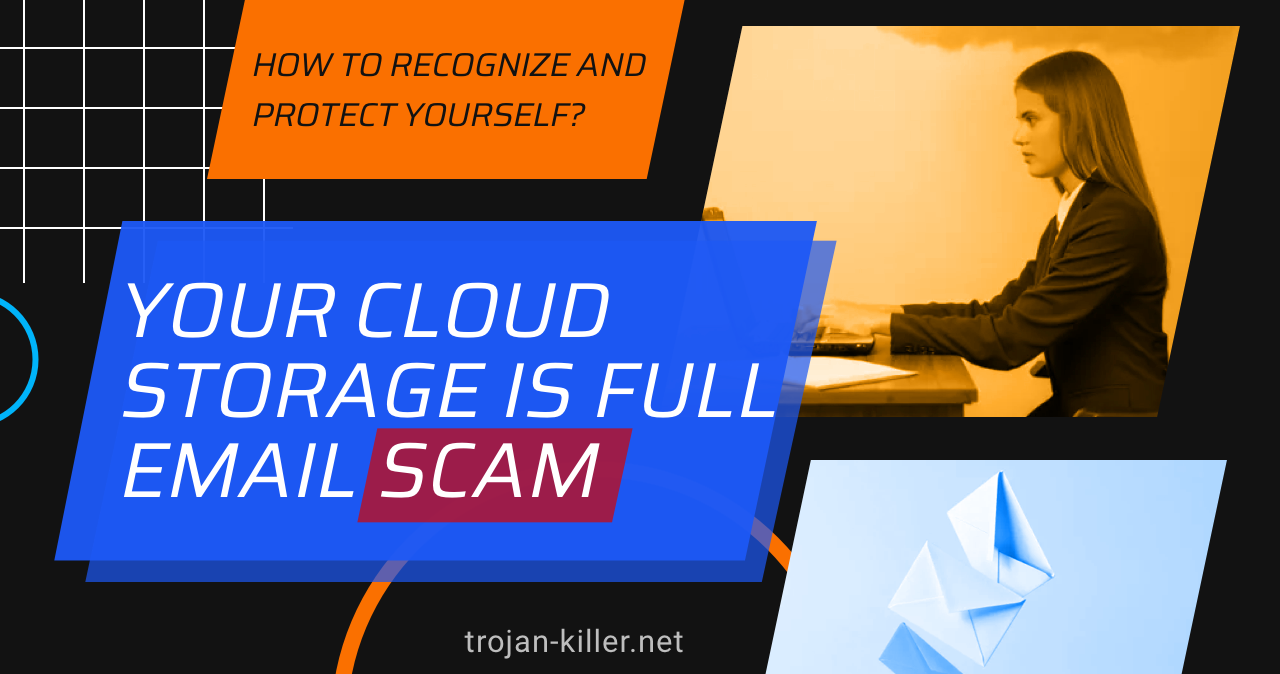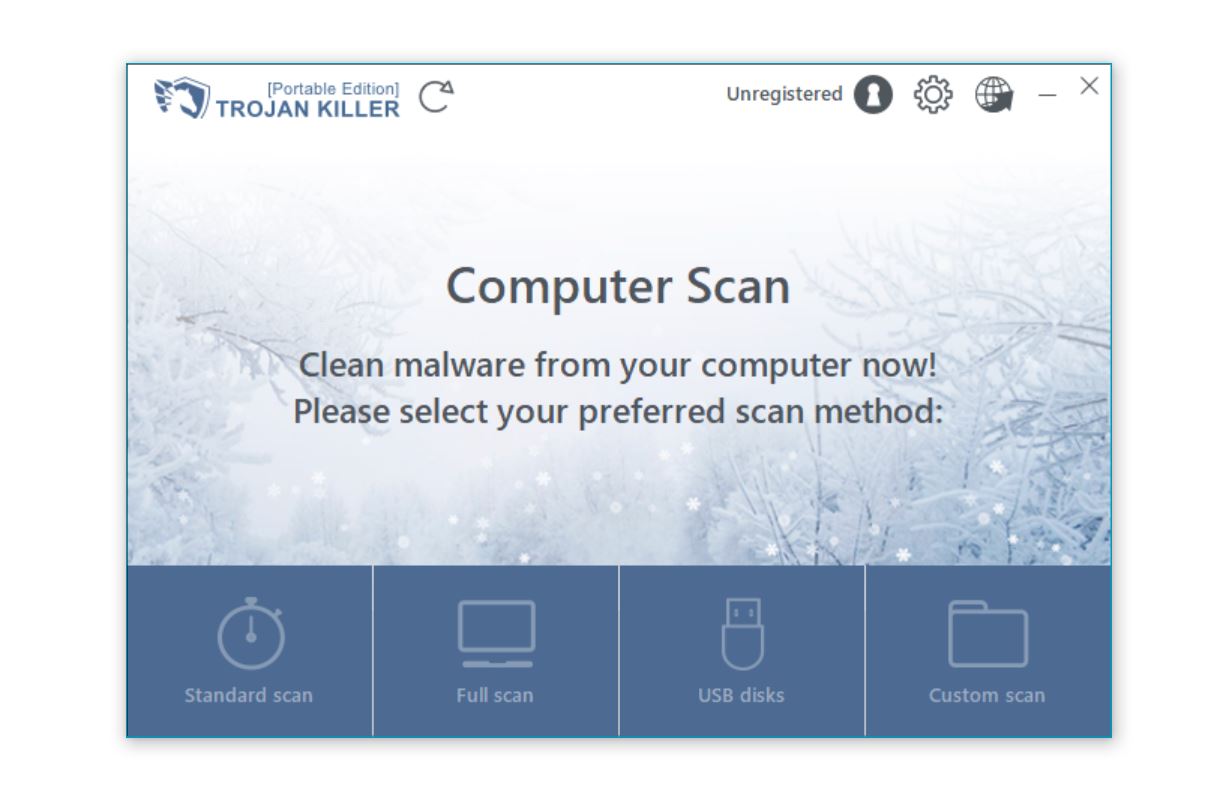Physical Address
Lesya Kurbasa 7B
03194 Kyiv, Kyivska obl, Ukraine
Physical Address
Lesya Kurbasa 7B
03194 Kyiv, Kyivska obl, Ukraine

The “Your Cloud Storage Is Full” email scam deceives recipients with false claims about their storage being at capacity and security threats being detected. This guide exposes how cybercriminals use these fake notifications to redirect victims to malicious websites, potentially leading to data theft, financial loss, and identity theft. Learn to identify these fraudulent emails and protect yourself from their harmful consequences.
| Threat Name | “Your Cloud Storage Is Full” spam email |
| Threat Type | Phishing, Scam, Social Engineering, Fraud |
| Fake Claim | Recipient’s cloud storage is full and multiple threats have been detected |
| Disguise | iCloud, Google Cloud Platform, or other popular cloud services |
| Delivery Method | Deceptive emails with misleading subject lines and branded content |
| Potential Damage | Identity theft, financial loss, malware infection, unauthorized access |
| Protection | Vigilance with suspicious emails, verification of sender authenticity, use of security software |
The “Your Cloud Storage Is Full” email is a sophisticated phishing campaign designed to create urgency and fear in recipients. These emails falsely claim that the recipient’s cloud storage (often specifically mentioning iCloud or Google Cloud) is full and that multiple security threats have been detected within their account.
The message usually warns that without immediate action, the recipient’s photos, videos, contacts, files, and private data will be permanently lost. To resolve this alleged issue, the email offers a special discount for additional storage—typically around 50GB for a small fee like $1.95.
However, this is entirely fraudulent. The email has no connection to legitimate cloud services and is designed solely to steal information or money from unsuspecting victims.
Source: Analysis of cloud storage phishing campaigns, 2025
This scam operates through a multi-staged approach designed to maximize its reach and effectiveness:
Below are actual examples of scam email text that have been reported. Recognizing these patterns will help you identify and avoid similar scams.
Subject: Your iCloud storage is full – Urgent Action Required
From: iCloud Security Team <security@icloud-alerts.com>
To: Valued Customer
URGENT NOTIFICATION!!!
Dear Valued Customer,
Your iCloud storage is FULL (100% CAPACITY) and (24) security threats have been detected in your account.
If you do not take immediate action, all your personal photos, videos, contacts and important files will be PERMANENTLY DELETED within the next 24 hours due to storage overflow and security concerns.
SPECIAL OFFER: Upgrade now and get 50GB of additional secure storage for only $1.95
CLICK HERE TO UPGRADE NOW
This is a limited time offer. Act now to save your files and protect your account.
iCloud Security Team
© 2025 Apple Inc.
Subject: Google Drive Security Alert – Storage Limit Exceeded
From: Google Drive Team <noreply@googledrive-storage.net>
To: Google User
ALERT: Your Google Drive Storage is Critical
Dear Google User,
Our system has detected that your Google Drive storage has reached its maximum capacity. Additionally, our security scan found 18 potential threats in your stored files that need immediate attention.
Warning Signs:
Subject: CLOUD STORAGE CRITICAL ALERT – PAYMENT REQUIRED
From: Cloud Storage Services <alert@cloud-storage-center.info>
To: Customer
⚠️ YOUR CLOUD STORAGE IS FULL ⚠️
ATTENTION USER!!!!
We have tried to contact you many times!
Your cloud service subscription has expired and your storage is at critical level. We detected 36 TROJANS AND MALWARE in your account that may have compromised your personal information.
YOUR FILES WILL BE DELETED IN: 12 HOURS 36 MINUTES
YOUR PHOTOS WILL BE DELETED IN: 12 HOURS 36 MINUTES
YOUR CONTACTS WILL BE DELETED IN: 12 HOURS 36 MINUTES
RENEW NOW FOR ONLY $1.99 and get full security protection with 75GB of additional space.
TAP HERE TO SAVE YOUR FILES NOW
Cloud Storage Security Center
THIS IS YOUR FINAL NOTICE
Key Red Flags in These Examples:
Falling for a “Your Cloud Storage Is Full” email scam can lead to several serious consequences:
Protect yourself by watching for these telltale signs of fraudulent cloud storage notifications:
Implement these security practices to defend against “Your Cloud Storage Is Full” scams and similar phishing attempts:

Understanding the differences between fraudulent and legitimate cloud storage notifications can help you avoid scams:
| Feature | Legitimate Cloud Notification | Scam Email |
|---|---|---|
| Sender Address | Official domain (apple.com, google.com) | Similar but incorrect domain (apple-support.com) |
| Addressing | Uses your actual name and account details | Generic terms (“User,” “Customer”) or no name |
| Language Tone | Professional, clear, properly formatted | Urgent, alarmist, grammatical errors |
| Links | Direct to official domains | Lead to unrelated or suspicious websites |
| Action Required | Offers multiple solutions, not just payment | Focuses primarily on immediate payment |
| Security Claims | Specific about any security concerns | Vague mentions of “threats” or “infections” |
| Payment Process | Uses established billing methods, existing accounts | Requests new payment details on suspicious sites |
The “Your Cloud Storage Is Full” scam is part of a larger ecosystem of email-based fraud. Watch out for these related scams that use similar tactics:
Never click links in suspicious emails. Instead, open your browser and manually navigate to your cloud service provider’s official website. Log in to your account and check notifications, storage status, and security alerts directly from your account dashboard.
If you’ve clicked a link but haven’t entered any information, close the browser tab immediately. If you’ve entered credentials or payment details, change your passwords immediately, contact your financial institution if payment information was shared, and scan your device for malware using a reliable security solution like Trojan Killer.
Scammers send these emails in mass campaigns to millions of addresses without knowing which services recipients actually use. They rely on statistics—a small percentage of recipients will happen to use the mentioned service and might fall for the scam.
Modern email clients typically block automatic execution of malicious code. However, the primary danger comes from clicking links within the email or downloading and opening attachments. Some advanced phishing emails might attempt to exploit vulnerabilities, so keep your email client and security software updated.
Email addresses are harvested from data breaches, purchased from illegal data brokers, collected through previous scams, scraped from websites, or generated through automated guessing of common names and domains. Using unique email addresses for different services can help you identify which source leaked your information.
Yes, legitimate cloud service providers actively fight against impersonation scams by implementing email authentication protocols, reporting fraudulent websites, educating users, and providing clear guidelines about their official communication practices. They also offer security features like multi-factor authentication to protect accounts even if credentials are compromised.